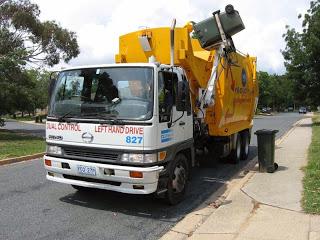 The city of San Francisco in California, United states of America, has set the standard really high with regards to recycling. The city’s recycling goal for 2010 was 75% however in 2009 San Francisco has already reached 73%, and all this by the most significant consumer society. The data made available by the city show that 72% of products that could very well be recycled were never delivered to land fill sites, which is certainly an extraordinary success and as a result one which European countries should take up.
The city of San Francisco in California, United states of America, has set the standard really high with regards to recycling. The city’s recycling goal for 2010 was 75% however in 2009 San Francisco has already reached 73%, and all this by the most significant consumer society. The data made available by the city show that 72% of products that could very well be recycled were never delivered to land fill sites, which is certainly an extraordinary success and as a result one which European countries should take up.San Francisco’s terrific recycling success story has actually been enhanced by way of the Mandatory Construction and Demolition Debris Recovery Ordinance of '06 and that expects construction corporations to recycle waste of all variations. It happens to be necessary for firms to comply which is the reason the 2010 target of 75% will likely be accomplished and the goal of zero recyclable waste materials heading to land fill in The year of 2010 is realistic. As expected, the city of San Francisco is not simply intended for organizations, seeing that individuals likewise are being pushed to utilize recycling schemes and also composting techniques.
Recycling Scotland
A new grant of £5 million is currently being distributed between organizations as well as companies in Scotland that will boost the growth of latest recycling amenities intended for plastics. About an additional £10 million of private investment is necessary to allow the creation of newer recycling services specifically for plastic materials.
The government funding is actually being administered by Scotland’s Waste & Resources Action Programme which in turn concentrates on the plastics waste made by the houses and companies. During the coming few months and years its projected that almost all plastic material shall get back to the production chain in order to look after Scotland’s environment from the strain involving land fill. There is no doubt that as recycling intensifies it may result in a lot more work opportunities throughout Scotland as well as schemes for business across the border.
Right now, Scotland recycles about 15,000 tonnes of plastics and a good deal of that is sent for dealing with in Asian countries. The grant of £5 million will promote the progression of plastic materials recycling centres throughout Scotland.
Each and every filthy job which occurs
Hi-tech waste is surging dishonestly in to countries within The african continent and therefore Nigeria has came to the conclusion to call a stop. Instructions were passed down by the Nigerian government to the security services, customs agents and environmental employees to call a halt on the constant dumping of old electric powered merchandise coming from countries including the UK. From now on, Nigeria promises to talk closely with the European union and the United states of america to make certain that world-wide electronic-waste exchanging is far more closely monitored to counteract the unlawful dumping in areas such as Nigeria.
Exporters of electronic waste materials did every single thing they could to hide the reality that the copious amounts of unwanted computer systems end up being flown to Nigeria, not necessarily for re-use but unfortunately for scrapping and then dumping. Quite often the actual storage containers have purported to generally be hauling second hand items but the truth is they have been engaging in electronic junk.
The Basel Action Network
publicized a report in 07 that reported that 500 storage containers with 400 thousands of out of date computers are actually arriving in Lagos every month. Valuable waste such as that within computer systems comes with chemicals which are a health risk to safety for example cadmium, mercury and lead.
Nigeria is hoping for governed recycling of electronic items but insists that this dumping and burning in the open-air of personal computer systems is now suspended.
Scrapheap slum dogs
The Indian government has now found that electronic waste materials, most of it created within India, is steadily building by 10 % yearly and its often ending up in urban slum spots. As many as twenty-five thousand individuals are currently employed in the unregulated business of electronic waste recycling with only about 5 per cent of the electronic waste materials proceeding by way of correct recycling equipment.
Children / slum-dogs will be given money for retrieving the worthwhile contents in personal computers such as the mercury and apart from the dangers of being seriously injured from the metal casings they also run the hazard of actually being poisoned.
The Indian government is making an effort to crack down on the situation with completely new rules but the piles of waste, twenty-eight thousand tonnes annually throughout Mumbai, still need to be handled by unsuccessful official recycling firms. Two of India’s cities have great electronic waste materials management systems in force and are Bangalore and Delhi.
The matter of electronic waste materials can now no longer be brushed aside by any government and through force of circumstance the problem of recycling is having to be correctly tackled - once and for all.
